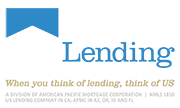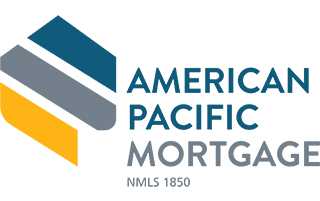6 Essential Tips For Lowering Your FHA Closing Costs
Buying a new home is expensive—and not just because the price of a home is typically in the hundreds of thousands of dollars. First, actually moving into your new home is costly. Secondly, you’ll need to make a down payment, even with an FHA loan. Thirdly, you’ll have to pay closing costs. At the end of the day, you’re looking at having spent a small fortune once you’re finally all moved in, so save money wherever you can throughout the buying process. Fortunately, there are some ways to lower your FHA closing costs.
What Is An FHA Closing Cost?
Closing costs are the fees that you have to pay on the day you close. You’ll pay closing costs no matter what type of home mortgage you take out. These costs cover a range of fees and can end up being quite expensive.
Average Closing Costs
Generally speaking, closing costs run anywhere from 2 percent to 5 percent of the home’s price in closing costs. This means if you bought a $200,000 home, you can expect to pay between $4,000 and $9,000 in closing costs. In 2017, the average closing costs around the country were around 3 percent of the purchase price. In areas with higher tax rates, closing costs were as high as 5 to 6 percent.
Fees Included In FHA Closing Costs
You can expect to pay these standard closing fees for your FHA loan:
- Application fee
- Appraisal fee
- Attorney fee
- Closing fee (also known as escrow fee)
- Courier fee
- Flood determination fee
- Home inspection fee
- HOA transfer fees
- Lender’s policy title insurance
- Lead-based paint inspection
- Owner’s policy title insurance
- Origination fee
- Pest inspection fee
- Recording fees
- Survey fee
- Title company title search fee
- Transfer taxes
- Underwriting fee
Why A Prepaid Item Is Not A Closing Cost
There are a few items that you will be expected to pay at closing that aren’t considered closing costs. This is because these costs are not fees for services required to be performed as part of the home buying process. These items are the costs of ongoing homeownership that you will have to pay for upfront. Such prepaid items include the following:
- Loan interest – You will begin paying for your FHA loan on the date you close. This means you will have to pre-pay the loan interest through the end of the month in which you are closing. What you owe will vary based on the time of the month that you are closing on.
- Mortgage insurance – All FHA loans require that you purchase mortgage insurance. You will need to pre-pay the first month of mortgage insurance at closing.
- Property taxes – You will need to reimburse the seller for some of the property taxes that they have paid. This is because they will have paid for the year but should only owe taxes on the months that they owned the house. What you owe will vary based on the month of the year that you are closing in.
Ways For Lowering Your Closing Cost
While there’s no way to lower the cost of the prepaid items that you will have to pay for (unless you strategically move your closing date, which may not be possible), there are ways to lower the fees that you will owe at closing. Here are six ways to lower the closing costs for your FHA loan:
1. Increase Your Credit Score
Your credit score is a good indication of not only your current financial situation but also of how financially responsible you are. If you have a high credit score, there’s a chance that your lender can help find ways to lower your closing costs. They are more likely to do this for borrowers with high credit scores because they want the loan to go through, and because they know you’re likely to pay them back on time and in full. A high credit score gives you more negotiating power.
Increasing your credit score may take some time but it could be well worth it. Here are a few tips for boosting your credit:
- Pay off credit card debts – The lower your credit card debts are, the better. Generally speaking, you should carry a balance that’s no more than 30 percent of your credit.
- Pay bills on time – Paying late or forgetting to pay at all can hurt your score. You can choose to have your bills automatically paid, which will prevent late payments.
- Become an authorized user – If you have a family member or friend with a credit card account in good standing, you can be added as an authorized user with their permission. This will allow their account and its history to be added to your credit report, which can improve your score.
2. Look For Multiple Lenders
Remember that not all lenders charge the same fees. Speak with several different lenders who are approved to issue FHA loans and ask for an estimate of their closing costs so that you can compare. As long as you do this within a short period of time, it won’t hurt your credit score. If your credit is pulled several times in the same period of time, it will be counted as a single inquiry.
3. Ask Help From Your Lender
Closing costs can be negotiated. If you have a good credit score, it will be easier to negotiate. However, not having perfect credit shouldn’t stop you from asking for reductions in fees. Lenders make money off of borrowers in interest, which means they want to do what they can to ensure you take their loan. If you have other loan estimates from other lenders, use these as leverage to try to get your closing costs lowered. Additionally, if you have a relationship with your lender, they may be more willing to reduce rates since you are a valued customer. Some banks even have rebate programs for long-term customers.
4. Double Check For Random Fees
You should be provided with a list of fees when you request a loan estimate. Look through these fees and identify any fees that seem random to you, like fees charged for pulling your credit report or for mailing documents, etc. Lenders often charge fees for things like these as a way to get the most out of their borrowers. You can tell your lender that you won’t pay for these fees. There’s a very good chance that they will waive them because they want to retain you as a customer.
5. Look Around For Title Insurance
Title insurance helps to protect both the buyer and the lender by ensuring that no one else but the seller has a claim to ownership of the house being bought. You’ll need to pay a title company to perform a search and to purchase title insurance; however, not all title companies charge the same rates. This means that you can shop around for the lowest rate.
6. Roll Your Closing Cost Into Your FHA Loan
If you can’t afford to pay for the closing costs out of pocket, you can have them rolled into your FHA loan. To do this, you must have the house appraised for the combined amount of the loan amount and the closing costs.
FHA Mortgage Tips
Keep these additional tips in mind when considering an FHA mortgage:
FHA Closing Costs Are Different From Your Down Payment
Your down payment is a part of the home’s price that you pay upfront. It has nothing to do with the fees involved in the processing of the loan. Your down payment is not a part of your closing costs, which is why it can’t be rolled into your loan.
Sellers Can Contribute To Closing Costs
In some cases, the seller might be willing to cover some of your closing costs to make sure the sale goes through. For example, maybe you’re buying a house from a friend or family member. They may be willing to help out by paying some of your closing costs. However, they can only contribute an amount that is 6 percent or less of the home’s total cost. The closing costs must also be directly related to the processing of the loan.
Your Credit Score Affects Your Closing Cost
In addition to mortgage insurance, you will also need to purchase homeowner’s insurance and potentially flood insurance (if it’s determined that your house is located in a flood zone). You’ll want to compare costs by getting quotes from several different insurance companies to find a policy with lower premiums.
Carefully Consider Insurance Premiums
When shopping around for lenders, make sure that you request a GFE. A GFE will provide a list of their possible closing costs. You can then use the GFE of one lender to negotiate the closing costs of another. You can also use the GFE to see if the lender is charging for unnecessary fees. By pointing out certain fees, you can request that specific fees are waived.
Your Good-Faith Estimate (GFE)
One of the biggest differences between an FHA loan and a conventional loan is that you can avoid paying mortgage insurance if you take out a conventional loan by putting down a 20 percent down payment. If you take out an FHA loan, you will need to pay FHA mortgage insurance premiums, which are usually around 1.75 percent of the loan amount.
Closing Costs Are Different for a FHA Loan than a Conventional So Be Prepared
FHA loans are popular due to their less strict eligibility requirements as well as their relatively low down payment and interest rate requirements; however, keep in mind that you will be responsible for paying a certain amount in closing costs on top of your down payment. Closing costs can be expensive, but fortunately, there are ways to reduce them.
The views, articles, postings, and other information listed on this website are personal and do not necessarily represent the opinion or the position of American Pacific Mortgage Corporation or US Lending Company.
* For loan examples and more information visit our disclosure page at https://www.uslendingcompany.com/disclosures/





